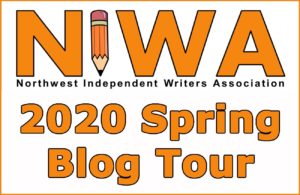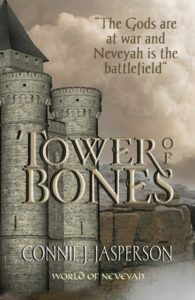An Editor’s Advice to New Writers, by Connie J. Jasperson
This is the third post in a six-week blog tour series for the Northwest Independent Writers Association. You can catch up with NIWA at https://www.niwawriters.com/
~~~
New writers embarking on the journey of learning the craft are bombarded with rules:
~Show, don’t tell,
~Simplify, simplify,
~ Don’t write long sentences
~Avoid vagueness
~ Don’t use big words.
These are necessary rules but can be taken to an extreme. The most important rules are
~Trust yourself,
~Trust your reader,
~Write what you want to read.
Sometimes writing advice is good because beginning authors need to educate themselves in the craft. We must learn how to write lean, descriptive prose, and create engaging conversations.
We must become fluent in the rules of grammar, develop a broader vocabulary, learn how to develop characters, build worlds, etc., etc.
But sometimes writing advice is bad. Taken to an extreme, certain writing advice is detrimental because if a writer isn’t careful, they can end up with an unbalanced narrative.
Good/Bad advice number one: Remove adverbs.
A heavy handed approach turns this advice into nonsense. Words like later and soon are adverbs. The lesson should be, don’t use unnecessary adverbs as they fluff up and weaken prose. Keep those that are needed.
Looking for weak words and phrasing is a time-consuming task. Things to look for and possibly delete or change:
- Any kind of qualifier or quantifier: just, a little, a bit, somewhat—these are words that show indecision. Powerful prose should not be indecisive.
- Action-stopping words: started to, began to—these word combinations slow and stall the action. They’re passive, so if you want to write active prose, go lightly with them. Your characters shouldn’t begin to move. Have them move and be done with it.
- Adverbs are words that end in the letters ly: probably, actually, sympathetically, magically … etc. These are weak, telling words that can be overused. It takes thought and intention to show what you mean in these instances rather than saying it, but it can be done.
Check for weak combinations using infinitives (verbs with the word “to” in front of them). Forms of the word be that you should look twice at:
- was being,
- has been,
- had been,
- is being,
- am being
- about to be (or to be)
The gerund in English is usually identified by the addition of the three letters “ing” added at the end of an infinitive. For example, “to be” is changed to “being.”
In modern speech, expressions such as “can’t stand,” “couldn’t help,” and “it’s no use” are frequently followed by gerunds: I can’t stand running in place.
Why do we look at each instance of weak word combinations instead of deleting them wholesale? Sometimes these words and combinations serve a purpose, which is why they remain currently in use.
We often use them in conversations. They can be overused in the narrative, so check each instance to see if your prose can be made stronger without them. That and very are sometimes essential but can become crutch words, bloating and fluffing word count.
Good/Bad advice number two: Don’t use speech tags.
What? Who said that? Why are there no speech tags in this nonsense?
Getting rid of speech tags for two or three exchanges when only two people are involved in a conversation is fine. However, you need to insert beats (bits of action) to show who is speaking.
When more than one person is speaking, keep the speech tags simple.
Good/Bad advice number three: Show, Don’t Tell. Don’t Ever Show!
It is easy to make your characters look cartoonish by describing their most minute expressions. We must have a reference, a way of understanding what that character is actually feeling beneath those gyrations.
Please, do express the thought process or set up key bits of exposition to convey genuine emotions.
Good/Bad advice number four: Write what you know.
Well, that ruins the fun of writing. Tolkien never visited Middle Earth and never met a dragon. Nor did he go inside a live volcano. However, was in the trenches during WWI, and the horrors he saw there influenced his work.
Our life experiences and interests shape and give power to our writing. Beyond experience, imagination is the source of the story and fuels it.
Good/Bad advice number five: If you’re bored with your story, your reader will be too.
I disagree with that blanket assertion. You’ve been completely immersed in the world of your manuscript for a year or more. Believe me, the hardest part is polishing up the finished product.
The reader will experience your novel as something new. It will be as fresh and engrossing to them as it was to you the day you began writing it.
Good/Bad writing advice goes on and on.
Kill your darlings. Indeed, we shouldn’t be married to our favorite prose. Sometimes we must cut a paragraph or chapter we love because it no longer fits the story. But just because you like something you wrote doesn’t mean you should cut it. Maybe it does belong there—perhaps it was the best part of that paragraph.
Cut all exposition. So, why are we in this handbasket, and where are we going? Some background is essential. How you deploy the exposition is what makes a great story.
Don’t use words ending in “ing.” Don’t be ridiculous. Leading off with gerunds weakens your prose. Overuse leads to run-on sentences and info dumping. Use them appropriately and with intention.
Bad advice is good advice taken to an extreme. It has become a part of our writing culture because all writing advice has roots in these fundamental truths:
- Overuse of adverbs ruins the taste of an author’s work.
- Too many speech tags can stop the eye, especially if the characters are snorting, hissing, and ejaculating their dialogue.
- Too much telling takes the adventure out of the reading experience.
- Too much showing is tedious and can be disgusting.
- Know your subject. Do the research and, if necessary, interview people in that profession. Readers often know more than you do about certain things.
Authors must learn how grammar works, and other aspects of the craft. I recommend these three books as the basic reference manuals I most often use and refer to:
- The Chicago Guide to Grammar, Usage, and Punctuation, by Bryan A. Garner
- The Writer’s Journey, Mythic Structure for Writers, by Christopher Vogler
- Story: Substance, Structure, Style and the Principles of Screenwriting, by Robert McKee
I highly recommend investing in other writers’ guides. They’re a good way to learn the many nuances of writing craft. However, they’re written by people who assume you’ll use common sense as you develop your voice and style.
We who desire to learn the craft of writing must have faith in ourselves and apply the advice of the gurus gently. If we instill balance into our narrative, we can produce work that stays with the reader long after the last line has been read.
More than anything, I am a reader. If you write it, I will read it. Go forth and write fearlessly!
*** *** *** *** ***
Connie J. Jasperson is a published poet and the author of nine fantasy novels. Her work has appeared in numerous anthologies. A founding member of Myrddin Publishing Group, she can be found blogging regularly on both the craft of writing and art history at Life in the Realm of Fantasy. You can find her books on her Amazon author page: http://bit.ly/CJJASPauthor
Follow Connie J. Jasperson on Twitter: https://twitter.com/cjjasp



